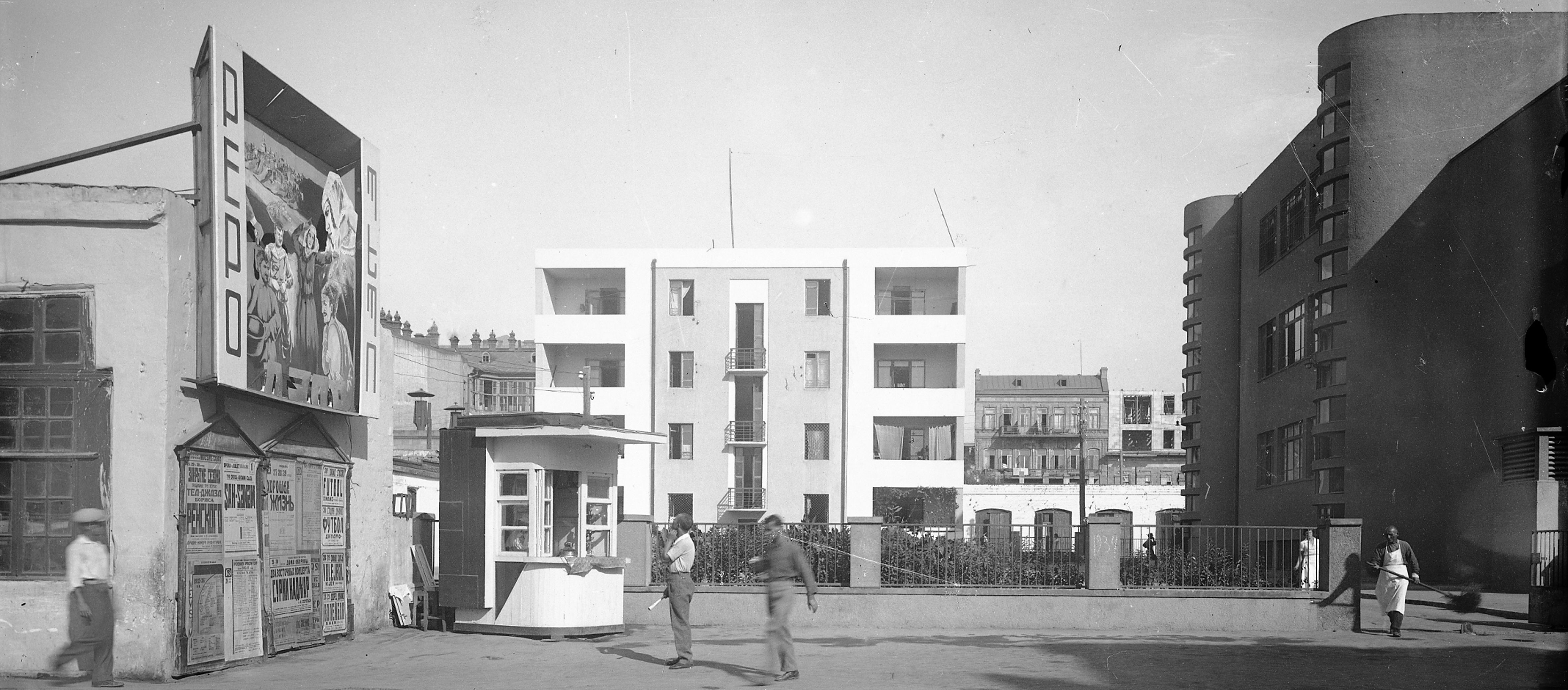
Lecture by Christina E. Crawford
Christina E. Crawford
- Register here
- April 25, 2025
- 2025 Anniversary
Socialism Means Housing: Architectural Praxis in Early Soviet Baku
Friday, April 25, 2025, 12:00-1:15pm New York Time (find your time)
Christina E. Crawford (Emory University)
To register, visit the Eventbrite event page
The activity of praxis is operative in both architecture and Marxism. In architecture, praxis is marked by nonlinear trial and error processes, feedback loops between ideation and materialization. In Marxism, praxis is the revolutionary, practical-critical activity required to enact societal change. In both definitions, hands-on experimentation is key, and theory emerges from action. In design and construction projects undertaken during the first decades of Soviet power, spatial problems and their solutions revealed themselves through praxis. This type of planning practice was the only option available to the early Soviet state: without a clear idea of what socialist city making should entail, living blueprints developed in the making, as we see in the early years of the Azerbaijani Soviet Socialist Republic.
The oil-rich city of Baku, brought into the Soviet sphere in 1920, presented all of the standard characteristics and attendant challenges of an early 20th century capitalist city: a dense urban core, poor worker housing, underdeveloped transportation, and industry adjacent to residential areas. From 1924-1927, through the architectural program of worker housing, newly installed Soviet leaders, architects, and planners transformed Baku from a capitalist oil boom town into a first-generation socialist city. This talk follows the various design experiments enacted to address Baku’s housing problem that include ad-hoc renovation of industrial buildings into housing, import of oil worker kit-houses from the United States, and finally standardized urban blocks that provided living quarters bundled with other social infrastructure.
Christina E. Crawford is an architectural and urban historian, a trained architect, Masse-Martin NEH Associate Professor of Art History at Emory University, and affiliated faculty at the Kharkiv School of Architecture. Her research focuses on the transnational exchange of ideas about housing and urban form in the twentieth century. Her first book, Spatial Revolution: Architecture and Planning in the Early Soviet Union (Cornell University Press, 2022), follows the development of socialist urban theory and practice in three seminal industrial sites: Baku, Magnitogorsk, and Kharkiv. She is co-editor of Detroit-Moscow-Detroit: An Architecture for Industrialization, 1917-1945 (MIT Press, 2023), and is currently writing a book about interwar exchanges of worker housing expertise between the US and Europe using Atlanta, Georgia as a primary node. Crawford received her PhD and MArch from Harvard University, and her BA from Yale University. She served as SHERA President in 2021.
Image caption: New worker housing, Baku, Azerbaijani Soviet Socialist Republic, mid-1920s. Azerbaijan State Kino-Foto-Fono Archive, NN. 4-141.